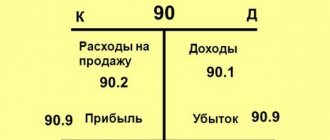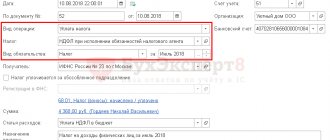Importers and exporters are facing big challenges this year. Due to logistics restrictions, participants in foreign economic activity cannot fulfill contracts on time and in full, and foreign counterparties, taking advantage of the conditions for exiting the contract, collect penalties, fines, damages and lost profits. In addition, the situation entails risks associated with failure to comply with the requirements of Russian currency legislation.
The importer, according to currency legislation, is obliged to repatriate , i.e. return to your bank account the currency paid as an advance for goods not delivered or services not provided. In case of non-repayment of the advance payment, the Russian importer will be subject to a fine.
Exporters, in turn, have the risk of not receiving export proceeds, which also leads to fines.
The Russian Ministry of Finance has taken a number of measures aimed at easing foreign exchange controls. The conditions for the occurrence and measures of administrative and criminal liability for violation of Russian currency legislation in the event of failure to fulfill the obligation of residents to repatriate funds under agreements with non-residents are changing.
In June, the Ministry of Finance presented a draft law on the gradual abolition of repatriation. It is planned that in the future, currency control will replace control over questionable transactions, risks will be assessed, but for now, from January 1, 2021, it will be possible not to return up to 10% of revenue, from 2022 - up to 30% and then in increasing order. It is planned that complete abolition will occur by 2025.
True, the Ministry of Finance supports non-commodity exporters, but the Central Bank proposes a more radical approach - to cancel repatriation for everyone. At the same time, the Central Bank is taking the initiative to enshrine in law the concept of a dubious currency transaction, so that it remains possible to prevent transactions in the shadow economy.
Types of violations of currency legislation and liability
All violations related to the scope of currency control are divided into the following areas
, How:
- Failure to comply with established deadlines for submitting reporting documents. First of all, this includes certificates.
- Submitting incorrect or outright false information. This happens both intentionally and by mistake.
- Incorrect completion of paperwork. This means entering incomplete data or data containing irrelevant information.
- Failure to comply with the time frame for transferring currency to the account. The specificity also lies in the fact that the businessman will be forced to pay a fine in any case - even if the delay occurred due to the foreign partner’s late payment of invoices.
- Ignoring the obligation to return to the Russian Federation the money that was paid by non-residents.
Within the framework of the topic, of course, the issue of liability for violating the procedure for working with currency transactions is of interest. In this case we are talking about responsibility
:
- administrative (implies penalties);
- civil law (leads to the cancellation of the transaction);
- criminal (fraught with punishment up to imprisonment).
Who in Russia deals with penalties for violations of the Civil Code? Leading government agencies
that organize monitoring of all transactions carried out between Russian and foreign financial institutions are:
- Central Bank of the Russian Federation;
- The Federal Tax Service;
- Federal Customs Service.
Note 1.
As for sanctions, in most cases it is the tax office that applies them. Customs fines for violations committed during customs operations.
What else may be needed and when?
A certificate of supporting documents (SPD) is provided only for contracts that require registration (and assignment of a unique identification number). Deadlines for submitting SPD for currency control:
- when preparing a customs declaration (CCD), provision of SPD is mandatory within 15 working days after the month in which the CCD was drawn up;
- for transactions without a customs declaration - 15 working days after the month in which the shipping invoices are issued.
- for other transactions and situations - 15 working days after the month of execution of confirming acts.
Along with the certificate, the supporting documents themselves are provided (except for the customs declaration - the bank will receive it from customs electronically).
These include:
- when importing/exporting goods into a vehicle - shipping papers;
- when providing services/performing work/transferring results of intellectual activity - acceptance certificates, invoices, invoices and/or other documents under the contract. Those. for example, a card for account 26 with a posting reflecting the service received can also be considered confirmation.
A certificate on transactions of export-import of goods subject to customs declaration (with registration of a customs declaration) is provided in the following cases:
- Export with deferred payment (customs declaration issued before receipt of revenue).
- Import with prepayment.
When making advances for export transactions and payment after delivery for import transactions, SPD is not provided; the data is received by the bank directly from the Federal Customs Service.
Fines
To better understand the essence of the issue, you need to delve into some basics, and then compare the violations themselves.
General information
Penalties in connection with delays and other types of penalties are described in Article 15.25 of the Code of Administrative Offenses of the Russian Federation
. Its content determines that fines are issued to legal entities for failure to comply with deadlines for submitting documentation for the implementation of currency control, as well as for its incorrect execution and storage.
Particular attention is paid to late provision of:
- reporting on the movement of foreign currency;
- transaction passports;
- information on changes in connection with foreign accounts of Russian residents;
- other supporting documents and information about the authenticity of the transaction.
Note 2.
Violation of the deadlines for both payment for goods and delivery also threatens the application of penalties. For enterprises this is an amount from 40,000 to 1,000,000 rubles. Implementation of illegal transactions with foreign currency or transactions that ignore special bank accounts is fraught with a fine for the full amount of the transaction.
Table
We have presented all the most significant sanctions for violating currency controls below. The information provided applies to legal entities.
Table 1. Fines for violating the VC.
| Type of violation | Article of the Code of Administrative Offenses of the Russian Federation | Fine, rub. |
| Failure of a resident to receive payment for the sale of commodity units and provision of services to a foreign partner organization, as well as failure to return money for goods that did not reach Russia | Points 4 and 5 | 0.75 amount – full contract amount |
| Ignoring the deadlines for issuing a transaction passport (the same applies to re-registration) | P.6 | 40 000 – 50 000 |
| Late submission of certificates of currency transactions and supporting documents | 5 000 – 50 000 | |
| Refusal to provide papers upon a banking request | 40 000 – 50 000 | |
| Repeated violation of the procedure or time frame for submitting documentation throughout the year | 400 000 – 600 000 | |
| Failure to provide documents regarding changes in connection with accounts in foreign banking companies | P.2 | 800 000 – 1 000 000 |
| Late provision of information on opening and closing accounts | P.2 | 50 000 – 100 000 |
| Violation of the procedure for maintaining accounts opened in foreign currency | P.1 | 0.75 amount – the full amount of the illegal transaction |
In general, this state of affairs remains the same as of 2019.
Closing documents under a foreign trade contract: what to submit and when
When the contract is already registered and the National Tax Code has been assigned, the obligation to communicate with the bank does not end. Additionally, you need to provide acts, invoices, invoices, invoices, UPD and more:
- when crediting currency - simultaneously with the provision of information about the currency transaction code or supporting documents;
- when Russian rubles are credited to the account - no later than 15 working days from the date of crediting according to the statement;
- when writing off foreign currency or Russian rubles - simultaneously with the payment order.
Each bank independently develops its own form and its own procedure for providing the necessary information.
Criminal penalties for non-compliance with exchange controls
Responsibility for misconduct within the framework of currency legislation can be by no means only administrative. Criminal penalties are also applied.
Example 1.
Article 193 of the Criminal Code of the Russian Federation – “Evasion of obligations to repatriate funds in foreign currency or the currency of the Russian Federation” – promises large fines and even imprisonment. The title of the article itself speaks about the reason for the responsibility.
In cases where a resident was supposed to receive a certain amount, which subsequently did not reach the current account, the court makes a verdict based on the amount of missing funds.
Table 2. Criminal consequences.
| Amount, rub. | Amount of fine, rub. | Term of imprisonment |
| > 9 000 000 | From 200,000 to 500,000 | Up to three years. As an alternative, correctional labor may be imposed. Up to four years - if a group of people participates in a conspiracy |
| > 45 000 000 | Up to 1,000,000 | Up to five years |
Example 2.
Article 193.1 – “Conducting currency transactions to transfer funds in foreign currency or the currency of the Russian Federation to the accounts of non-residents using forged documents” – provides for a fine of 200,000 - 500,000 rubles. or imprisonment for up to three years for providing knowingly incorrect data when transferring money. If we are talking about a crime committed by a group of persons, a large amount or the use of a shell company, the time spent in prison increases to 10 years, and the fine – up to 1,000,000 rubles.
More grounds for refusal to carry out a foreign exchange transaction
Cases when an authorized bank may refuse to carry out a foreign exchange transaction are listed in paragraph 4 of part 5 of Article 23 of Law No. 173-FZ. Today, such a refusal is possible if the necessary documents are not provided or if false information is provided.
According to the new rules, the bank will also be able to refuse a foreign exchange transaction if such an operation violates the provisions of the legislation on currency regulation: Articles 9, and (or) 12, and (or) 14 of Law No. 173-FZ, the provisions of other acts of foreign exchange legislation of the Russian Federation.
The decision to refuse the operation will be communicated to the interested person in writing no later than the business day following the day the decision to refuse is made.
Tired of searching for news on multiple accounting sites? Are you afraid of missing really important changes in legislation?
Subscribe to the largest accounting channel BUKH.1S in Telegram
https://t.me/buhru (or type @buhru in the search bar in Telegram) and we will promptly send important news directly to your phone!
PS We also have fun 
Limitation of actions
If a company commits violations in connection with currency legislation, the risk of prosecution for a businessman remains for two years.
.
At the moment, this period is relevant for any violations taken into account in Article 15.25 of the “Code of the Russian Federation on Administrative Offenses” dated December 30, 2001 No. 195-FZ. The article itself bears the appropriate title – “Violation of the currency legislation of the Russian Federation and acts of currency regulation authorities.”
Note 3.
Before 2021, the statute of limitations was reduced by one year. The decision to increase the period was due to the low speed of document flow between the Federal Tax Service, the Federal Customs Service and banking institutions. Because of this circumstance, many legal entities managed to avoid fines by appealing to the expiration of the statute of limitations. Now such an outcome has become rare.
How to challenge a fine - is it possible?
There is almost always a chance of success in appealing the very fact of applying a fine or its amount through the courts. There are two ways to go:
- appealing to the insignificance of the violation;
- indication of mitigating factors.
First option
works if a penalty is applied for factual errors made, for example, in the preparation of documents (certificates). If the deadlines are not met, it will not be possible to justify the insignificance - even if the delay is only a couple of days.
If we talk about the second option
, here everything is somewhat more complicated. What can be interpreted by the court as mitigating circumstances? This is first of all:
- impeccable reputation of the organization;
- difficult financial situation;
- the fact that the error was corrected after the expiration of the established period, but before the fine was issued;
- etc.
These points can influence the court decision regarding the fine amount, but they will not completely eliminate liability.
Latest legislative changes
All recent changes in the field of currency regulation were implemented in the period from 2021 to 2021. Moreover, most of them occurred precisely in the 18th year.
Today it is no secret who in the state is responsible for ensuring currency control. The financial transactions of both residents and non-residents are monitored by the tax and customs services, the Central Bank and VC agents (i.e. banking companies).
All the new realities of currency control have been introduced in the country since 2018. In previous years, legislation in this area imposed particularly strict requirements on legal entities, and more precisely, on management staff. The reason is that high-ranking officials not only determine the procedure for companies to conduct foreign economic business, but also spend most of their time abroad.
Note 4.
Since 01.2018, the currency status of a resident of the Russian Federation has undergone changes. For Russian citizens who live most of the time in another state (more than 183 days a year), a regime of benefits has been established - with modernized rights regarding the management of current accounts.
Changes regarding penalties and amounts collected
reflected in the Federal Law of September 29, 2021 No. 325-FZ “On Amendments to Parts One and Two of the Tax Code of the Russian Federation.” This act determined a number of adjustments in connection with foreign exchange control laws.
Example 3.
Penalties for legal entities for illegal transactions using foreign currency and payments made bypassing currency control agents are now not calculated based on the payment amount, but are fixed in specific figures - from 20,000 to 30,000 rubles. Those legal entities that repeatedly fail to return the money paid by non-residents on account of goods and services not provided on time will be under the threat of being suspended from their activities for 6 months - 3 years.







